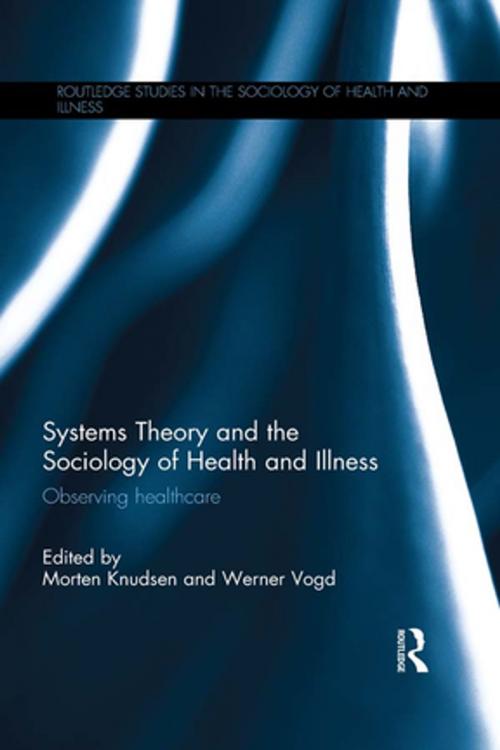Systems Theory and the Sociology of Health and Illness
Observing Healthcare
Nonfiction, Social & Cultural Studies, Social Science| Author: | ISBN: | 9781317637592 | |
| Publisher: | Taylor and Francis | Publication: | October 30, 2014 |
| Imprint: | Routledge | Language: | English |
| Author: | |
| ISBN: | 9781317637592 |
| Publisher: | Taylor and Francis |
| Publication: | October 30, 2014 |
| Imprint: | Routledge |
| Language: | English |
Modern societies and organizations are characterized by multiple kinds of observations, systems, or rationalities, rather than singular identities and clear hierarchies. This holds true for healthcare where we find a range of different perspectives – from medicine to education, from science to law, from religion to politics – brought together in different types of arrangements. This innovative volume explores how this polycontexturality plays out in the healthcare arena.
Drawing on systems theory, and Luhmann’s theory of social systems as communicative systems in particular, the contributors investigate how things – drugs, for example – and bodies are observed and constructed in different ways under polycontextural conditions. They explore how the different types of communication and observation are brought into workable arrangements – without becoming identical or reconciled – and discuss how health care organizations observe their own polycontexturality.
Providing an analysis of healthcare structures that is up to speed with the complexity of healthcare today, this book shows how society and its organizations simultaneously manage contexts that do not fit together. It is an important work for those with an interest in health and illness, social theory, Niklas Luhmann, organizations and systems theory from a range of backgrounds including sociology, health studies, political science and management.
Modern societies and organizations are characterized by multiple kinds of observations, systems, or rationalities, rather than singular identities and clear hierarchies. This holds true for healthcare where we find a range of different perspectives – from medicine to education, from science to law, from religion to politics – brought together in different types of arrangements. This innovative volume explores how this polycontexturality plays out in the healthcare arena.
Drawing on systems theory, and Luhmann’s theory of social systems as communicative systems in particular, the contributors investigate how things – drugs, for example – and bodies are observed and constructed in different ways under polycontextural conditions. They explore how the different types of communication and observation are brought into workable arrangements – without becoming identical or reconciled – and discuss how health care organizations observe their own polycontexturality.
Providing an analysis of healthcare structures that is up to speed with the complexity of healthcare today, this book shows how society and its organizations simultaneously manage contexts that do not fit together. It is an important work for those with an interest in health and illness, social theory, Niklas Luhmann, organizations and systems theory from a range of backgrounds including sociology, health studies, political science and management.















